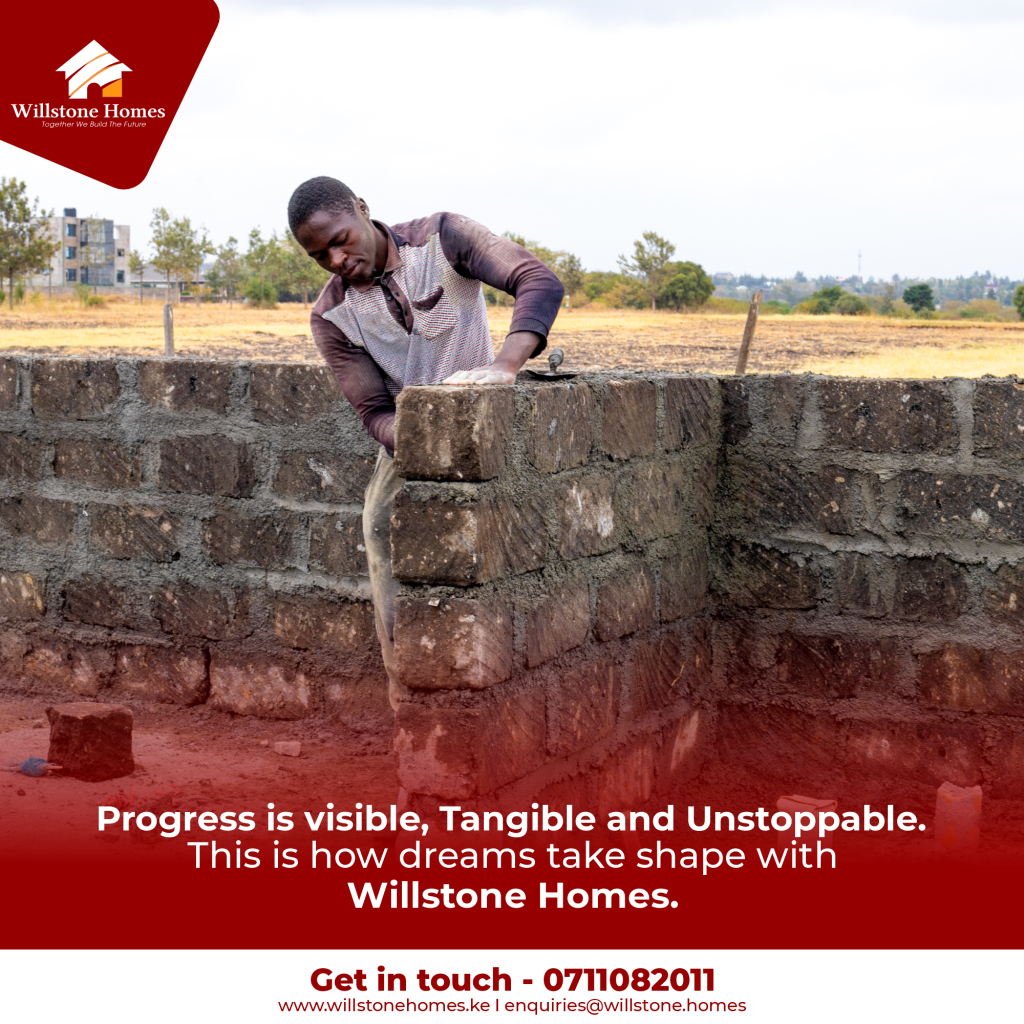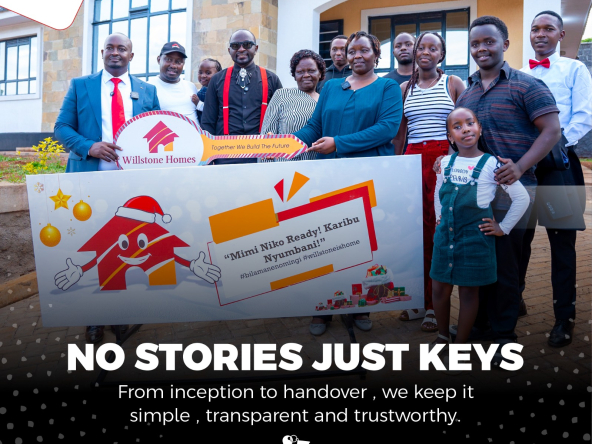What Is Stamp Duty in Nairobi Real Estate?
Stamp duty in Nairobi real estate is a tax charged on the transfer of property ownership. It is paid to the Kenya Revenue Authority (KRA) and is one of the biggest upfront costs buyers face when acquiring a home or piece of land.
This fee applies whether you are buying an apartment in Kilimani, a townhouse in Lavington, or land in Kiambu. For many buyers, stamp duty can be a deal-breaker — unless the seller or developer steps in with a concession.
Stamp Duty Rates in Kenya (Urban vs. Rural)
Stamp duty rates depend on whether the property is classified as urban or rural:
| Property Location | Stamp Duty Rate | Example (KES 10M Property) |
|---|---|---|
| Urban Areas (Nairobi, Mombasa, Kisumu) | 4% | KES 400,000 |
| Rural Areas (outside major towns) | 2% | KES 200,000 |
Read Also: Say Goodbye to Rent Forever — Secure Your Legacy with Willstone Homes
Quick Example
- Buying a KES 15M apartment in Nairobi (urban): Stamp duty = KES 600,000
- Buying a KES 15M farm plot in Kiambu (rural classification): Stamp duty = KES 300,000
This difference alone can save or cost you hundreds of thousands of shillings.
Who Pays Stamp Duty in Nairobi Real Estate?

Traditionally in Kenya, the buyer pays stamp duty. It is collected before the property is transferred into the buyer’s name.
- Buyer’s Responsibility: KRA requires proof of payment before registration at the Lands Office.
- Seller’s Role: Sellers rarely pay stamp duty, but in today’s competitive Nairobi property market, developers sometimes offer to cover it as a concession.
Read Also: Mortgage Rate Buydowns in Kenya: Do They Really Save Money?
When Sellers Cover Stamp Duty in Nairobi
Some Nairobi developers now use stamp duty concessions to attract buyers, especially for off-plan apartments and units in oversupplied markets like Kilimani, Kileleshwa, and Westlands.
Case Study 1: Buyer Pays
- Apartment Price: KES 12,000,000
- Stamp Duty (4%): KES 480,000
- Buyer must pay this upfront, along with legal fees and deposit.
Case Study 2: Seller Concession Covers It
- Same Apartment Price: KES 12,000,000
- Developer offers: “We will cover your stamp duty.”
- Buyer saves KES 480,000 cash, which can instead fund fit-outs, moving costs, or furniture.
- Seller maintains property value without cutting headline price.
Why Stamp Duty Matters in Nairobi
- High Entry Barrier: For many buyers, stamp duty is as big a hurdle as the deposit.
- Cash Flow Strain: Stamp duty must be paid upfront — it cannot be rolled into your mortgage.
- Negotiation Lever: Asking a seller or developer to cover stamp duty is one of the smartest ways to negotiate without requesting a direct price cut.
How Buyers in Nairobi Can Manage Stamp Duty
- Budget Early: Add 4% to any Nairobi purchase price to avoid surprises.
- Negotiate Concessions: Target developers who openly advertise stamp duty coverage.
- Know the Law: Stamp duty is mandatory under the Stamp Duty Act (Cap 480, Laws of Kenya). Non-payment delays registration.
- Leverage Rural vs. Urban Rates: Some peri-urban land still qualifies for 2% — check classification carefully.
Read Also: Rent vs. Own in Nairobi Under Stress: What Really Holds Up?
Stamp Duty in Nairobi Real Estate is unavoidable, but who pays can make all the difference.
- By law, buyers carry the cost.
- In practice, many Nairobi developers now cover stamp duty as a concession to sweeten the deal.
- For buyers, negotiating stamp duty coverage can save hundreds of thousands of shillings at the most critical moment: just before ownership transfers.
👉 If you’re planning to buy property in Nairobi, always ask upfront: “Who is paying the stamp duty — me, or the seller?”






